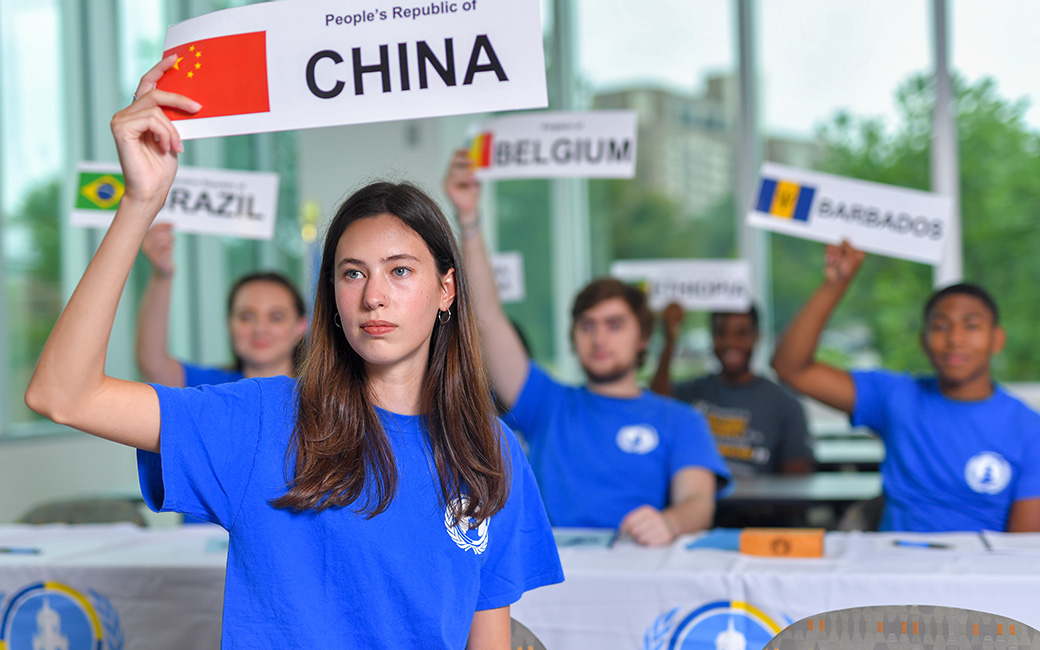Hallo Welt! (Hello World!)
Madeleine Meyer researched the transition of TU’s Model UN program to a virtual format in the wake of the COVID-19 pandemic.

In her junior year of high school, Madeleine Meyer accepted a scholarship for a year-long study abroad in Germany and stepped into the world of global citizenship. She spent her year as a youth diplomat and fell in love with international studies and linguistics. When her father took a State Department position in Bogota, Colombia, she completed her senior year of high school there.
As the child of Foreign Service parents, Meyer’s interests in language and culture may not be unusual. Still, the number of languages she speaks shows real commitment to her chosen field. She is proficient in both German and Spanish and is studying Russian to better understand Slavic culture. She chose the international studies major at TU, and is minoring in political science and German.
Meyer is highly independent—her parents were out of country for her first two years at TU. So she turned to her professors and her honors community for support. “I value the incredible mentorship and leadership of my professors. I’ve been taught by highly intellectual and informed professors who have guided and supported me throughout my undergraduate career.”
“ I’ve been taught by highly intellectual and informed professors who have guided and supported me throughout my undergraduate career. ”
One of her supporters is Alison Rios Millett McCartney, a professor in the Department of Political Science and faculty director of the Honors College. Meyer connected with McCartney at a prospective students’ open house and subsequently took four courses from McCartney, who she calls her personal mentor. Meyer says she is grateful that McCartney pushes her to showcase her academic skills and strive for greatness.
In September 2020, McCartney invited Meyer to work as a research assistant to plan the 2021 Model UN conference and adapt it to a virtual format due to COVID-19. The Towson University-Baltimore County Model United Nations is a free Model UN conference offered to Baltimore County high schoolers to foster civic engagement and build a knowledge of international affairs.
“Over the past year, I planned the logistics of the conference and spent the summer analyzing survey data to compare the virtual conference to previously held in-person conferences,” explains Meyer. She received a summer research grant and an Undergraduate Research Impact Award for her work.
“This fall, we will present our findings at the annual conferences of the European Consortium for Political Research and the American Political Science Association.”
After graduation, Meyer hopes to enter the Foreign Service to serve as a diplomat. Her goal is to develop a thorough understanding of how history, anthropology, geography and political climates interact to impact international affairs. The world will be a better place for her contributions.